www.diabeteschoices.org.uk – A useful source of information about food and drinks for people with Type 2 diabetes.
www.nhs.uk – the NHS Online is the country’s biggest health website and gives all the information you need to make choices about your health.
 www.myageingparent.com – A resource for everything you need, or want to know about elderly care. This includes positive ways to keep ageing parents, friends and relatives active and healthy, maintaining their finance and legal needs to information on care options, local authority funding and managing age-related health issues.
www.myageingparent.com – A resource for everything you need, or want to know about elderly care. This includes positive ways to keep ageing parents, friends and relatives active and healthy, maintaining their finance and legal needs to information on care options, local authority funding and managing age-related health issues.
 www.associationfornutrition.org – The Association for Nutrition (AfN) defines and advances standards of evidence-based practice across the field of nutrition and at all levels within the workforce. We protect and benefit the public by Championing Registered Nutritionists (RNutr), whose entry onto the UK Voluntary Register of Nutritionists (UKVRN) is an assurance that they meet our rigorous standards of competence and professionalism; Supporting frontline health and social care workers with essential tools which enable individuals to evaluate and enhance their nutrition competences; Recognising high quality, relevant nutrition training through our Course Accreditation, CPD Endorsement and Certification schemes.
www.associationfornutrition.org – The Association for Nutrition (AfN) defines and advances standards of evidence-based practice across the field of nutrition and at all levels within the workforce. We protect and benefit the public by Championing Registered Nutritionists (RNutr), whose entry onto the UK Voluntary Register of Nutritionists (UKVRN) is an assurance that they meet our rigorous standards of competence and professionalism; Supporting frontline health and social care workers with essential tools which enable individuals to evaluate and enhance their nutrition competences; Recognising high quality, relevant nutrition training through our Course Accreditation, CPD Endorsement and Certification schemes.
 www.voyagemd.com – VoyageMD has been created to provide information for people travelling with diabetes.
www.voyagemd.com – VoyageMD has been created to provide information for people travelling with diabetes.
 www.myageingparent.com – Securing the future of antibiotic development… determined to make a difference.
www.myageingparent.com – Securing the future of antibiotic development… determined to make a difference.
MedicAlert is a global charity that provides medical ID jewellery for people with hidden medical conditions or allergies. Situated on the pulse points, it displays the international medical symbol to quickly identify your condition and speed up treatment in an emergency. Because every moment matters.
MedicAlert members benefit from peace of mind that goes far beyond their bracelet. Their conditions are reviewed by medically trained staff, who prioritise the text engraved on each piece of jewellery. A detailed medical record is also held in our secure database, which can be accessed 24/7 by emergency responders.
www.FocusOnDiabetes.nihr.ac.uk – the National Institute for Health Research website about diabetes features interviews with researchers into diabetes and includes resources for patients interested in taking part in research.
www.modernes-tierisches-insulin.de – German diabetes.
www.sugar-sweet.de – German site for animal insulin.
onlinepharmacycheck.com/~doc/facts-about-ua – IDDT’s Facts About Diabetes translated into Ukrainian
www.youtube.com/watch?v=tYlQTylh_0M&feature=player_embedded – ‘I’m Type 1 Aware: Are You?’ video by JDRF and Diabetes UK.
www.qub.ac.uk/elearning/public/WomenWithDiabetesThingsYouNeedToKnow/ – A very useful website raising awareness of reproductive health among women with diabetes.
Calibre audio Library – If you suffer from diabetic retinopathy you may have trouble reading print books this is where Calibre Audio Library can help.
www.spirit-healthcare.co.uk – Spirit Healthcare are an innovate Healthcare Retailer working to improve the quality of life for individuals with a range of long term conditions including diabetes. With the CareSens Blood Glucose Meter and the Mission Urine Testing range Spirit Healthcare have both products and resources available to help individuals with diabetes.
www.sugarbalance.co.uk/ – a useful site about ‘Sugar Balance programme’ run by Nic Lee, a diabetes coach and counsellor who has Type 1 diabetes. It aims to simplify the process of managing the highs and lows.
www.drugwatch.com – Drugwatch.com is a US-based comprehensive Web site featuring extensive information about thousands medications and drug side effects.
go.qub.ac.uk/womenwithdiabetes – a preconception counselling website developed in partnership with women with diabetes to raise awareness of the importance of reproductive health in women.
www.gsf-syrup.co.uk – a syrup for treating hypoglycaemia in orange, tropical and mint flavours. It is available on prescription for people with diabetes.
www.glucogel.co.uk– A useful gel for treating a hypo.
thependseytrust.org/ – The Pendsey Trust aims to provide access to education for those affected by diabetes in developing countries in the hope that this will enable these individuals to enter employment and support themselves into a healthy, more certain future.
www.carers.org– A carer is someone of any age who provides unpaid support to family or friends who could not manage without this help. Carers need support too, so visit this useful site.
www.drwf.org.uk – Diabetes Research and Wellness Foundation is a registered charity whose long-term mission to to discover a cure for diabetes and in the meantime, to support, advise and educate people with diabetes and the general public.
www.diabetesbible.com – practical guidance for health professionals on diagnosing and treating diabetes.
www.expertpatients.co.uk – Expert Patients Programme (EPP) courses are FREE and help people to improve their health and wellbeing by learning new skills to manage their condition on a daily basis. People who have already attended courses have told us it has helped them to deal with their pain, tiredness, feelings of depression, frustration and other difficulties that may come from living with a long-term condition.
www.guyculverwelltrust.com – Young people raising money for IDDT in memory of their friend, Guy Culverwell.
http://instituteofdiabetes.org/ – The Institute of Diabetes for Older People (IDOP) is a non-profit making, research and academic institution, based at the University of Bedfordshire, dedicated to enhancing the health and well-being of all older people with diabetes and related metabolic illness.
www.nmsociety.org – Useful website looking at the benefits of lowering carbohydrate intake.
www.glycosmedia.com – A free and editorially independent diabetes news service with the latest diabetes news and information for professionals and patients wishing to keep abreast of latest developments.
www.lindalliance.org – IDDT is affiliated to the James Lind Alliance which aims to identify the most important gaps in knowledge about the effects of treatments, and has been established to bring patients and clinicians together in ‘Working Partnerships’ to identify and prioritise the unanswered questions that they agree are most important.
www.friouk.com – if you are travelling to hot climates, Frio Wallets keep your insulin cool.
www.equip.nhs.uk – A source of good quality information.
www.cardiacmatters.co.uk – a single source of information about the causes, symptoms and treatments of a range of heart conditions.
www.invo.org.uk – INVOLVE is funded by the Dept of Health to Promote and support active public involvement in NHS, public health and social care research. INVOLVE believes that involving members of the public leads to research that is more relevant to people’s needs and concerns, more reliable and more likely to be used.
www.owenmumford.com – Information about Owen Mumford’s medical devices including the AutoPen for use with animal insulins.
www.unistik3.com – Information about Unistik 3, a single use safety lancet is designed to make lancing less painful and is now available on prescription. Free samples are available, so people can try the Unistik 3 for themselves.
www.medipal.org.uk – Order online a MediPal medical ID card which provides immediate access to your medical details in case of emergency.
www.glucosemeters4u.com – Learn about Diabetic products.
www.rch.org.au/diabetesmanual/index.cfm?doc_id=2352 – Available free on-line an Australian Diabetes Manual for Parents manual from Westmead Children’s Hospital and the Royal Children’s Hospital – very useful for parents of children with Type 1 diabetes.
www.retinalscreening.nhs.uk/pages/default.asp?id=3&sID=135&cP=202 – This link will help you to locate and contact the local retinal screening programme responsible for your retinal screening. You can confirm which your screening programme is by contacting them using the contact details listed on the site.
www.hospitalhelp.co.uk – An independent website offering help to people going to hospital.
www.medicalshop.co.uk – Medical Shop is a mail order service for people with diabetes. It is possible to buy products online and over the ‘phone as well.
www.diabeteshealth.com/insulin – Diabetes Health presents a well-balanced and detailed article asking: “Where Have All the insulins Gone?” and “How Good and Safe are the Remaining Options?”.
www.radrr.com – Take a look and buy insulin pump covers that are ‘cool’ and durable for the toughest kids.
www.RemedyFind.com – RemedyFind is a free and unbiased site, not sponsored by any drug companies, that allows people to rate the effectiveness of the treatments they have used for specific health conditions. The site covers about 60 conditions and has 95,000 members.
www.yellowcard.gov.uk – The Dept of Health website for reporting adverse drug reactions and viewing those already made – now available to patients as well as health professionals.
www.dvla.gov.uk – The Driver and Vehicle Licensing Agency website that provides information about driving and diabetes.
www.wockhardt.co.uk – UK suppliers of pork and beef insulins in vials and cartridges.
www.diseasesconditions.com -Directory of information.
www.insulin-pumpers.org.uk – An essential visit for those contemplating using an insulin pump.
www.patients-association.com – Welcome to the Patients Association Website. Within this site you will find out what we do and will be able to let us have your thoughts on health care in the UK.
www.getcanadadrugs.com – An online sources or pork insulins that does nopt require a doctor’s letter, useful for people in the U.S.
www.xe.net – If you want to import insulin and need to convert currencies.
www.lilly.com – Eli Lilly website.
www.novonordisk.com – Novo Nordisk website.
www.nkfg.org – National Kidney Foundation.
www.neuropathy.org – Neuropathy Association.
www.feetforlife.org – Well worth a visit to learn how to care for your feet.
www.desang.net – Kitbags and organisers for people with diabetes to use to carry all their tools with them as they go about their normal daily lives.
www.jdrf.org.uk – Provides information about the progress of diabetes treatments and research as well as information on different aspects of living with diabetes, extremely useful to health professionals.
www.self-help.org.uk – Self Help UK provides a searchable database of over 1000 self help organisations and support groups across the UK that offer support, guidance and advice to patients, carers, and their relatives.
www.diabeticshop.co.uk – This site is designed to help people living with diabetes obtain products and services that can assist a diabetic in living a more natural daily life.
www.arcticmedical.co.uk – Arctic Medical supply a comprehensive range of diabetes care products, including a wide range of diabetes bags.


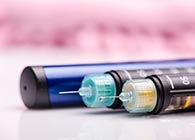


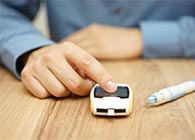

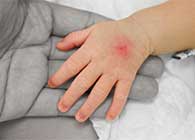


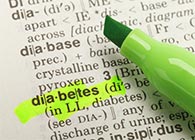

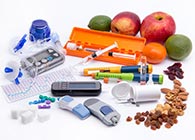
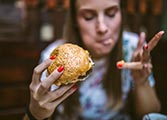

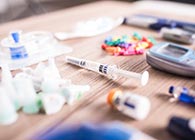





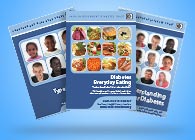


 www.associationfornutrition.org
www.associationfornutrition.org www.voyagemd.com
www.voyagemd.com













